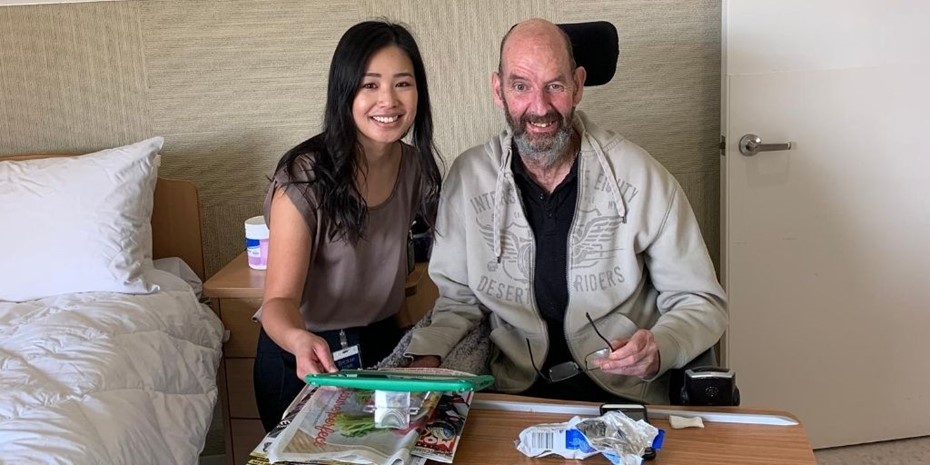Sallina Le, a Speech Pathologist at Brightwater’s Brain Rehabilitation Centre, Oats Street, explains that learning to communicate is about so much more than verbal communication.
Communication isn’t just about whether someone can speak or not. It’s about how to get a message across successfully. For our clients, it’s all about how we can have their needs and wants met using their own ability to communicate it – whether it be writing it down, drawing a picture, pointing at an item, using body language or gestures.
Getting a message across successfully empowers the clients to continue to communicate, and as health professionals it’s important that we support the way in which they communicate and to have the confidence to communicate. If we can empower people with disability to have their own ‘voice’, we are helping to improve their quality of life, maintain their dignity and enhance their overall independence.
Sallina’s inspiration to work in speech pathology in the disability sector comes from her passion for advocacy.
I have always been really passionate about advocating for people who may not have the capacity to advocate for themselves – for whatever reason.
I think this stems from how I was brought up and my childhood – my family were Vietnam War refugees, and I have spent most of my life advocating for them. And it made complete sense to me, when choosing a career path, to translate my compassion into working with people with disability.
Speech Pathology was an easy choice – as an individual, I value being able to communicate and develop relationships through talking to people and my favourite past time is to spend quality time with family and friends over food. This makes me incredibly passionate about assisting clients to ‘find their voice’ in order to be able to communicate with their loved ones, or improve their quality of life through being able to eat/drink what they love.
Helping people to gain the ability and the confidence to communicate is what drives Sallina.
I love most aspects of the job however being able to hear someone speak again, or watching their reaction when they eat again for the first time is invaluable and fulfilling. This is even more enhanced when the families are involved.
These are small things we take for granted on a daily basis, and it becomes such a big deal following a brain injury. Imagine if you couldn’t eat with your family or talk to them? Being part of their journey for these significant events and gains they make is definitely my favourite part of the job.
This year’s focus for speech pathology week is helping people to communicate with confidence – and that in fact, has to be one of my favourite things about the job. It’s allowing people to feel confident in their ability to get a message across, OR even in having social conversations and interacting with other people. A common theme sometimes with disability, is the fear of social isolation and disconnect from the community, and being able to play a role in helping someone feel confident enough to re-connect with friends, families, their social network and community is very fulfilling.
Sallina explains how Speech Pathology assists clients enhance their quality of life.
I feel the biggest difference I can make to my clients is to help them find a way they can communicate their needs and wants, and/or to have a good quality of life – whether this be with eating/drinking, or just enjoying and being able to participate in activities.
Speech Pathology is all about how we can give someone back their voice, or how we can help them communicate what they want. Another aspect is empowering someone to regain their ability to eat and improving their quality of life. Many of our clients develop swallowing disorders as a result of their injury, and this can significantly reduce their overall quality of life. Recently one of my clients was hospitalised for three weeks, and as a result had a nasogastric tube in that provided his nutrition. He did not enjoy this experience at all and one of his goals was to be able to eat normal food again. He has had to participate in intensive swallow rehab to start being able to enjoy food again, and since then has just wanted to eat chocolate every chance he can. He has worked very hard, and made significant gains to his health and quality of life since his hospital admission.



